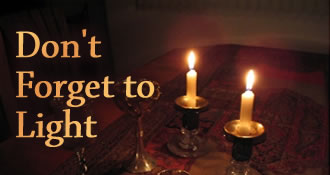
My mother was a wonderful woman who gave me my best qualities. It took me a long time to become conscious of that. But my heart knew it always. The knowledge was expressed in little subconscious ways. For example, when I formed my independent production company back in the early 1950's, I named it for my mother Bryna.
My mother never learned English. But I remember fondly how on the Sabbath she would make our whirlwind of a family stand still for a moment as she sat on the porch reading aloud from her Hebrew prayer book. When the Bryna production company became well known following several critical hits, I took my mother to Times Square in a big limo and pointed out a sign that covered the whole building. "You see, Ma, in lights, BRYNA PRESENTS". My mother simply shook her head and sighed, "America, such a wonderful land."
I agreed with my mother.
It is no coincidence that when I formed the Bryna Company, I also started a charitable foundation. I should have named that after my mother as well, because it was clearly her influence that was playing out in me. I remember that in our home we had a little tin box, a pushke, nailed to the wall.
Pushke in Yiddish means tin can, but this one was more like a piggy bank. It was where we placed coins to be given to charity. Of course, we barely had enough to eat ourselves, so our pushke was never bulging. But my mother made sure that there was always something in it. The Torah commands us to give to the poor. Charity is called tzedaka, because there is always someone who has less. A lot of people in the neighborhood thought my mother was a tzaddikes, a saint. They would bring her a handkerchief to bless and then place it on the head of some sick person, convinced that her blessing would make the sick well. Maybe it did.
During my freshman year in college, I became ill with the flu, and was lying in my dormitory room with a high fever. There was a knock on the door. "Your mother's on the phone." I was startled - we didn't have a telephone at home. She never called. I threw on a robe and walked down the hall.
My mother was calling me from a neighbor's home. "I had a feeling you were sick," she said. I went back to my bed perplexed. How could she have known?
I never gave her credit for so many things she did and was responsible for. Only now I realize the profound influence she had on me.
Most of all, I remember vividly how she died. She had been in the hospital for some time, unable to fight off pneumonia because of her weak heart and complications from her diabetes. My sisters and I stayed at her side as she got weaker and weaker, drifting in and out of consciousness. At dusk one day she roused herself. "What day is it?"
"Friday, Mama."
"Don't forget to light the candles on the Sabbath."
We quickly brought four candles to the room and started to light them. The nurses came in screaming. With the oxygen in the room, we could have blown up the hospital. So we went to my sister Betty's house to light them there.
Afterward, I came back alone. I was overwhelmed by my mother's composure and dignity. My father had died some years before, and the look in his dying eyes was unmistakable - sheer terror.
Watching my mother in that hospital bed, I must have seemed pretty scared myself, because she looked up at me and smiled a clear, serene smile. It was the kind of smile she used to have on her face every Sabbath when she sat on the porch with her prayer book. "Don't be afraid, Issur. It happens to all of us," she said.
I choked. Holding my own breath, I watched my mother breathe in, then out, so slowly, each breath causing her pain, until a long, deflating exhale followed by... nothing.
That is how the tzaddikim die, I have been told. It is called "dying by the kiss of G-d." The same G-d who created man by breathing life into him now kisses him and takes that breath away. It is a sign from G-d that someone is very special. Moses died that way, the Bible says.
I think a lot about how my mother died. I have not been a tzaddik; I cannot expect to die in this special way. But I do not want to go terrified into the darkness.
Kirk Douglas' recent books include an autobiography, Climbing the Mountain: My Search for Meaning, from which the above was excerpted, and two books for children, The Broken Mirror: A Novella and Young Heroes of the Bible: A Book for Family Sharing.

